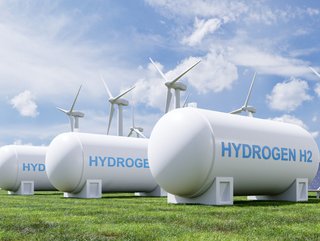Reducing Low-Carbon Hydrogen Costs Key to Decarbonisation

In a bid to accelerate the energy transition, a leading global consultancy has joined forces with an energy investment firm set on catalysing and accelerating the energy transition to ensure hydrogen is a competitive energy source.
Capgemini and EIT InnoEnergy highlight that although the low-carbon hydrogen space has experienced a period of wide-spread enthusiasm in the last three years, more needs to be done to make it more viable as a tool in the energy transition.
Low-carbon hydrogen has become a hot topic as it has the potential to play a significant role in tackling climate change and poor air quality. Currently, producing hydrogen from low-carbon energy is costly, according to the International Energy Agency (IEA). Its analysis found that the cost of producing hydrogen from renewable electricity could fall 30% by 2030 thanks to the declining costs of renewables and the scaling up of hydrogen production.
The IEA also said that in 2023, only 4% of projects entered the Final Investment Decision (FID) phase.
This small statistic compared to the interest in low-carbon hydrogen projects instigated the whitepaper, with the hope of delving into challenges preventing low-carbon hydrogen cost reduction and mass adoption.
Reducing Low-Carbon Hydrogen Investment and Operating Costs
Capgemini’s research with EIT InnoEnergy surveyed professionals from nearly 120 companies and organisations in the hydrogen industry across Europe, North America, Asia Africa and the Middle East.
Florent Andrillion, Capgemini’s Global Head of Climate Tech, is one of the whitepapers contributing minds. He said: “Our research emphasises the need for a collaborative effort to make low-carbon hydrogen a viable tool for decarbonisation. It’s not just about producing hydrogen; it’s about making it accessible and affordable for all relevant use cases.”

Low-carbon hydrogen is derived from non-renewable sources with less than 70% of the lifecycle emissions of fossil natural gas.
In the report, Capgemini pinpoints 2024 as a crucial year for the hydrogen industry based on targets for its development compared to production, mainly because hydrogen is still too expensive and uncompetitive. It calls for the industry to make the most of its many levers to reduce this challenge while rallying public support, conscious that it must be more demand-driven to ensure stability.
While laying out the challenges at hand, it is optimistic about low-carbon hydrogen’s future, projecting it as a vector and a real tool for decarbonising economies.
It rounds off on a positive note, which suggests although the road ahead may not be smooth, progress is being made to make low-carbon hydrogen more accessible. It is making a relevant contribution to decarbonisation objectives by 2030 and before the wider goal year of 2050.
What are the whitepaper’s main findings?
In short, there are six main findings from the Reducing Low-Carbon Hydrogen Investment and Operating Costs whitepaper.
- Low-carbon hydrogen’s overall cost is too high and uncompetitive compared to hydrogen produced from other sources
- There are major difficulties in developing low-carbon hydrogen projects at a competitive price
- Regulatory and legislative environments are essential in making hydrogen more competitive in the years ahead
- There are several internal levers that can reduce low-carbon hydrogen costs
- Digital has great potential as a key enabler in reducing hydrogen cost and carrying out projects at scale
- Innovation is an underrated lever that needs to be activated to deliver game-changing impacts.
Although the development of hydrogen infrastructure is slow and holding back widespread adoption, as emphasised by the IEA, opportunity is available in abundance, signalling a new era for this up-and-coming fuel type.
*******************
Make sure you check out the latest edition of Energy Digital Magazine and also sign up to our global conference series - Sustainability LIVE 2024.
*******************
Energy Digital is a BizClik brand.






